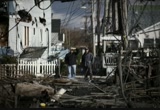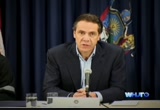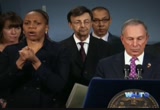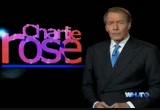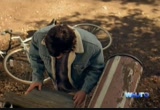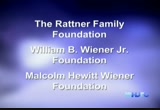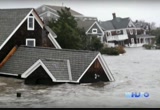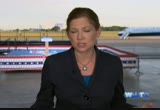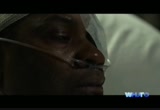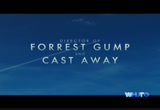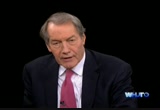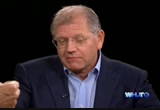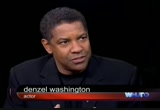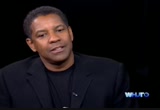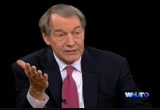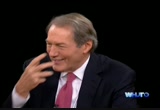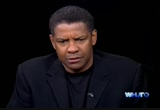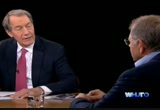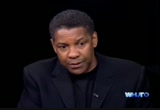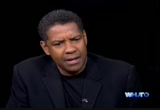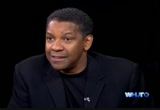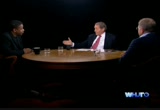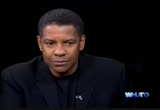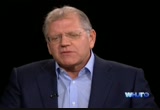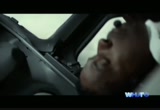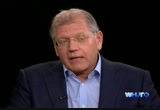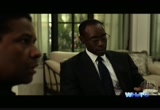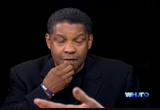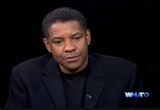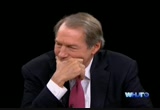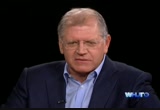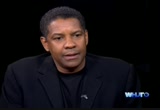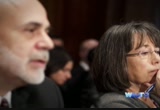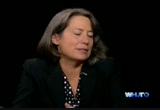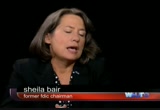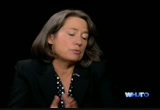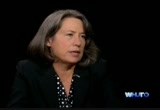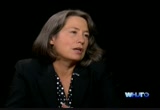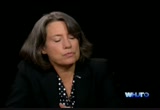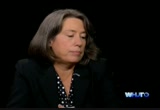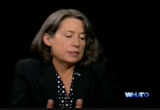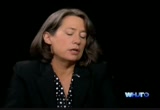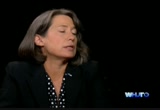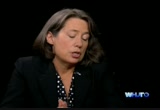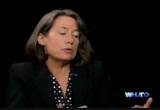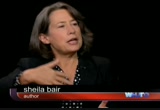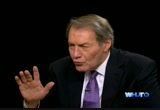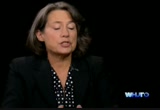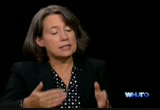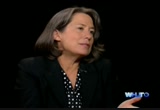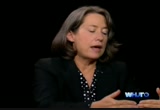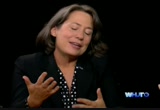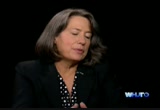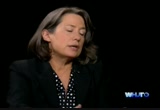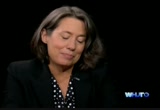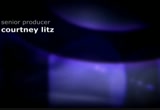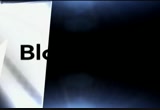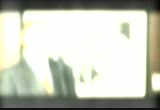tv Charlie Rose WHUT November 1, 2012 3:00am-4:00am EDT
3:00 am
storm hit landfall late monday night. flooding and storm surge has left unprecedented damage in parts of brooklyn, queens, lower manhattan, and new jersey. at least 46 people are dead and millions are without power as a result of the storm. many new yorkers tried to return to work today but limited transit and power are expected to continue. city officials emphasize that crews are working none stop to help life return to normal. president obama joined governor chris christie earlier in the day to survey the damage to new jersey's coast. >> for those like the people i just had the chance to meet on this block and thought new jersey, throughout the region whose lives have been upended, my second message is we are here for you, and we will not forget. we will follow up to make sure that you get all the help that you need until you've rebuilt. >> what i said yesterday i really mean. there has got to be sorrow, and you see that, and the president has seen that today, in the eyes and faces of a lot of the folks
3:01 am
he's met, and that sorrow is appropriate. we suffered some loss. luckily we haven't suffered that much loss of life, and we thank god for that. but we have suffered losses, and this is the worst storm that i've seen if my lifetime in this state but we cannot permit that sorrow to replaces the resilience they know all new jerseyans have. >> rose: after andrew cuomo of new york early today completed touring the region. he shared his impressions while discussing the state's recovery at a press conference. >> given the frequency of these extreme weather situations we've had, and i believe it's an increasing frequency, for to us sit here today and say, "well, this is once in a generation and it's not going to happen again," i think would be shortsighted and i think we need to anticipate more of these extreme weather-type situations in the future. and we have to take that's into consideration in reform, mottifying our infrastructure, our built environment.
3:02 am
>> rose: new york city mayor michael bloomberg began and ended his briefing at city hall with words to those who lost hay loved one in the hurricane. new yorkers everywhere joined him extending their thoughts to the victims of disaster. >> everyone here hearts go out to the families of those who lost family in the storm and those who lost their homes. our thoughts and prayers are with everyone and we certainly will give our full support in the next weeks and months to those hurt by the storm. >> rose: we turn to an interview we taped earlier this week with the actor denzel washington. and director bob zemeckis. >> it all comes down to the script for me. when i read a screen play that i can't put down, and when i read a screen play that's unique and really well written and complex, i feel it's worthy to do. and then i heard that denzel was interested in doing it, and when iwhen i read the screen play it was like he was perfect for the
3:03 am
part. so i called him up and said, are you really interested in this?" and he said, "year, i am." >> number one is the screen play. as they say, if it's not on the page it's not on the stage. as bob said, when you get a hold of something, when you read something that just grabs you-- and it's very rare that that happens for me, anyway, where you just it's a page turner and it's complex and it's interesting and it's something i hadn't done before. it's an easy decision. >> rose: we conclude this evening with the former chair of the f.d.i.c., sheila bair. >> my view is that, look, we had a crisis in 2008. but in 2009, we had a stable system. that was when we should have put down a couple these institutions, at least broken them up, and the bad assets left into receivership to be left out. you would have been able to downsize the sector and more efficiently allocate capital and again, not paint all the good players and bad players with the
3:04 am
3:05 am
3:06 am
hurricane sandy. >> america's with you. we are standing behind you. and we are going to do everything we can to help you get back on your feet. >> rose: the remains of super storm sandy are still causing trouble as far west as wisconsin but it's nothing like the damage in the northeast. >> in new jersey, nearly two-third of cut mers remain without power. >> we knew it was going to be bad, but this was pretty devastating. >> the flooding, the destruction there is pretty severe. >> as you can see, there is plenty of standing water that still remains. >> houses and cars, we can replace. it's really not what's important at all. >> new york city is struggling to come to life after the storm. >> sea water that came over that wall has crippled lower manhattan. >> amount of outages that we're experience regular literally unprecedented. >> the worst thing that happened to this city certainly since 9/11. >> there was a devastating fire on the rockaway peninsula. more than 100 homes destroyed. >> my whole family lost
3:07 am
everything. >> will you rebuild here? >> we have to. there's nowhere else to go. >> the storm has caused nearly 20,000 flight cancellations. >> this is a ghost town. i've never experienced an airport with nobody here. >> thanks to super storm sandy, this massive construction crane partially collapsed. >> it is still dangling above midtown massport. >> where is the last time you saw a storm this bad? >> i haven't. >> romney's been trying to walk this fine line between maintaining a public presence while the east coast was getting battered by hurricane sandy. > sandy. >> rose: i'm with governor christie on one thing-- it is very difficult to think about these polls right now when you look at the picture pictures that we've just been seeing. >> we'll rebuild it. no question in my mind, we'll rebuild it. but for those of us who are my age, it won't be the same. >> and action! >> rose: flyis robert zemeckis' new movie. it stars denzel washington as an
3:08 am
alcoholic airline pilot who miraculously lands his plane after a midair disaster. here is the trailer for the film. ♪ ♪ >> good morning, captain whitaker. >> 102 souls on board. ( beeping ) >> how you feeling? saved a lot of lives. ( alarm sounding ) >> everybody in brace positions the way you landed that plain was nothing short of a miracle. >> listen to me. >> the plane fell apart at 30,000 feet. >> we're going to roll it. ready? here we go. ♪ ♪
3:09 am
>> come on, baby girl. there are all kind of crazy newspeople out here. you're a rock star. you will never pay for another drink as long as you live. >> captain whitaker is a real american hero. >> an attorney from chicago. >> you had alcohol in your system. that could be life in prison. ♪ ♪ >> the hearing is in 10 days. >> you're under the microscope right now. ♪ if i don't get some shelter... ♪ >> can i come inside? >> come inside. i'll shoot you inside. >> the f.a.a. recreated the event. every pilot killed everybody on board. you were the only one who could do this. ♪ it's just a shout away >> i want to talk about the days leading up to the accident.
3:10 am
>> does whitaker know he's going to jail? ♪ it's just a shot away it's just a shot ♪ >> no one could have landed that plane like i did upo. >> rose: the movie say searing portrait of the price of addiction. joining me the director robert zemeckis, and its star denzel washington. i'm pleased to have both of them here. welcome. >> thank you. >> rose: talk about this for me, just for me. what's the dynamic of a plane which is going to crash because let's assume a mechanical failure or something, and you flip it upside down? and that's what saves the plane. >> bob's the expert. >> well, you know, what happened in our fictional story is that the elevator got frozen in a
3:11 am
pitch-down position. >> rose: right. >> so in the last-ditch effort, because our character, we felt, could do this because he was a navy fighter pilot, he -- >> rose: there's no doubt he's a good pilot. >> he understood what he had to do was stop the dive. >> rose: right. >> so by inverting the plane, he inverts the surface, and it makes the plane go up. >> rose: a navy piled would know that. >> yeah, a navy pilot would know that. and of course when we talked to our experts they said, "yeah, that would be a last-ditch effort." and then they said, of course the engines wouldn't run for very long." we said, "good, we'll pull that in the movie ( laughter ) >> rose: why this film for you? why fly. >> you know, i-- know it all comes down to the script for me. when i read a screen play i can't put down, and when i read a screen play that's unique and really well written and complex, i feel it's worthy to do. and then i had heard tha that denzel was interested in doing
3:12 am
it, and when i readed screen play it was like he was perfect for the part. and i called him up and said, are you really interested in it? and he said, yeah, i am." >> what they called me and said bob zemeckis. i said, what? when do we start? >> rose: did you really? >> yes, i did. >> rose: who you're working with as a director makes a big difference. >> it makes all the difference. yes, number one is the screen play. as they say, if it's not on the page it's not on the stage. so as bob said, when you get a hold of something, when you read something, of that just grabs you, and it's very rare that that happens for me, anyway. where you just-- it's a page turner and it's complex and it's interesting and something i haven't done before. you know, it's an easy decision. >> rose: what are you looking for? obviously, a good play eye mean, a good text and a good director. >> good text. i mean, that's what i'm-- i don't know what i'm looking for. >> rose: somebody surprises
3:13 am
you. >> my agent will call and say, "you really want to read this. this is something special." i sometimes i agree with him. sometimes i don't. >> rose: was this an interesting character? >> i'd say so. yeah, i'd say so. you know, i mean, i hadn't-- there had been films about-- about, you know, people with addiction issues, but i had never done one and to be a pilot on top of that -- >> rose: to be able to fly. >> and to be considered a hero over here when he's really not. yeah, it just had a lot of elements and a lot of truth i think. >> rose: tell me about john goodman's character. >> well, what's interesting is he's like-- you know, denzel's character's only friend. which is-- and when we were talking about who we're going to cast in this part, the thing that denzel and i said it is somebody we have to believe it whitt's friend. but john is-- he's just,un, a
3:14 am
great actor with impeccable comedy timing. and i always saw great humor in those scenes. and so we always knew we needed somebody who was going to be able to just naturally bring that to the part. >> rose: denzel described him as a scene stealer. >> well, i guess you could say that. >> you can't steal scenes if you aren't any good. >> rose: exactly. >> he's very, very good. very, very good. >> rose: roll tape. this is the first scene. this is denzel getting ready for takeoff, take a look as pilot. >> i don't think so, sir. >> are you sure? >> whitt whitaker. >> nice to meet you, >> my pleasure. >> oxygen, check. you want a hit? >> no, thank you, sir. >> you sure? >> yes, sir. .
3:15 am
>> how you feeling today, sir? >> a little tired. quick turnaround for me. off tomorrow. >> here's coffee. >> oh, thank you. >> and your aspirin. >> thank you. >> and the manifest with 102 souls on board. thank you, thank you, thank you. let's get them tucked in. we're ready to push. >> you got it. >> rose: this young pilot here is saying what to himself. he doesn't know what he's gotten himself into. >> "you want a hit?" >> rose: who is this? where am i going? what's going to happen? are you telling us a story about addiction, too? >> um, you know, i--un, i-- you know, there's obviously an addiction element, and, you know, we wanted to present that in a way that wasn't at all, you know, preachy or moralizing in any way, shape, or form. >> rose: a reality. >> when i first read the script,
3:16 am
i always thought the substance abuse that whip did in the piece was a symptom of a big are problem, deeper problem. i didn't think his issues were caused by it. i just think that he had-- you know, he was detached from everyone in the world. and he used that for relief. >> rose: does he work differently than other directors you've worked with? >> um, i suppose so. i mean, to me, the main thing for me working with a director is to be abe to trust them. if i trust the director, then i feel like i can do anything and not feel, i don't know, judged or whatever. and bob made it very easy. i mean, i don't even remember him. which is really the best part. you know, he's busy doing his thing, and i'd ask him, "bob, have we got it?" and he'd say, "i'm good.
3:17 am
i'm happy." you don't know. >> rose: you want to make sure they got it. >> you, like i said, you want to trust someone. you know, and when you trust them, then you -- >> rose: you want them to tell you the truth. you don't want them to be in awe of denzel washington. >> yeah, i guess. but i of you know. i would ask. i would say, "how do you feel? are you good?" and he'd say, "year, i'm good." >> rose: does having a good actor, with all he's done, give you limitless possibility that you might not otherwise have if you department have confidence and trust. >> oh, yeah, absolutely. i mean, what happened-- i mean, what was great working with denzel is every single choice that he made was great. so for me it was -- >> rose: it's an interesting thing to me. we were talking about creativity here the other day and whether a painter or actor, creativity is about making choices. you play this this way or that
3:18 am
way. you can do this or that. you can be louder or quieter. that kind of thing. >> but not necessarily conscious choices. >> rose: ah. >> van gogh just addes more paint. he doesn't say, "i think i need 2.2 ounces." not to say i'm comparing myself to van gogh, but i don't know half the time. that's why i have to trust the director i'm working with because i'm not sure, either. i'm just putting it out there, you know. i'll get a feeling or an instinct or a rhythm you know, and i'll keep pushing it, you know, there's one scene where we end up falling on the table. i think i did an extra 15 minutes. i was like, "where is the part where i fell on the floor?" he didn't use that part. but the more i saw the film, the story was already told. he was deep in it. he was at his-- he was a 10 in terms of being drunk. >> rose: right. >> and it was sad, you know, pathetic. >> rose: when you lookedt first cut he showed you, did you
3:19 am
think i can't believe he took this out? this was my best moment? or-- >> go ahead. >> rose: or "he edited that in a way i never imagined could turn it into what it did." >> i saw the film about six times before i saw the film. yeah, i just-- the first time i saw it i was just-- i don't know what i was. i was stunned. it was like i had to-- it was almost too permanent. it was like-- there was something about it that i just couldn't deal with it, actually. he had trouble even getting me to do the along. i'm like, i'm not going back in there. i'm not going back in there. >> rose: what do you mean? >> well, it just-- you know, i let it hang out. no pun intended, in this film, and it wasn't cute. it wasn't-- it was just raw. and it just affected me. i didn't expect-- i mean, i knew
3:20 am
what i had done. i hadn't seen the film all put together, obviously. but the-- seeing the whole film and the young-- what's the young man with the cancer? >> james bench dale. >> brilliant, brilliant. it just started piling up on me. it took me a couple of times, a couple three, times to see it before i started going, "my nose looks too big there." something like that. in fact, the screening we had in l.a. the other day was the first time i had seen the film with an crud audience. and i had no intention of staying, and i stayed the whole movie. >> rose: and how was the experience, different than you might have imagined? >> more laughter than i imagined. yeah, there was more-- i don't know if people were nervous or after the big crash scene maybe they needed relief. or, i don't know, but there was more-- you know. i mean, i let my backside hang out. >> rose: i saw that.
3:21 am
>> that alone is enough to make me cry. ( laughter ) wait until my mother sees this. >> rose: i thought of that for a moment. >> that seems to it in reality. that's when you go, "hey, they're going for it. this is not-- it's not a movie star--" >> that's what happens in a hospital gown. >> that's what happens. >> rose: this is a serious point. you were prepared to let it go there and say this is-- you started to say this is what happens when an actor is prepared to-- >> well, i could have easily had on underwear, and said, "i'm not doing that, bob." >> rose: i'm denzel washington, or whatever you didn't go there. >> i won't do it again. ( laughter ) >> rose: he will do it again. >> if the part demands it, he will. i upon that for sure. >> if the part demands it. >> rose: in other ways you felt a bit exposed here in terms of-- >> i don't know if it was me personally exposed, but it was just a-- a raw feeling i got
3:22 am
from it. it was emotional. it was very emotional to watch and to see all the way through and, you know, because it touches on so many areas. relationships with your wife, or ex-wife. with your children. and it may not be the same thing in my own life, but i can relate, you know, and i remember having an argument with my son-- it wasn't about alcohol or anything, but just, you know, can eye don't know, it was just-- it was honest. even though he's lying the whole picture. . >> rose: it's true. did you sense this what he's talking about? he was giving you something here. >> oh, yeah. no, i saw it, i saw it coming. un, it was interesting in this film, specifically, in the early weeks when i started assembling the footage, i was going through with my editor, our traditional way of editing, and something wasn't right. and i wasn't quite sure what it
3:23 am
was. and, you know, i just kept thinking about it and thinking about it. what i realized was that, you know, denzel's performance was setting the rhythm of this movie. and it came to me, and i said said,un" what? we can't just cut like we would traditionally," which is basically going by the script, you know. important lines that come to the other-- other actor for and that sort of thing. we had to do that. but we had to do that on this rhythm. and i was-- it was really, really interesting because denzel went into this thing and he-- this whole performance had an internal clock to it. and we just had to stay true to that, and that's what guided me through putting this movie together. >> rose: roll tape. this is the second scene of denzel in the plane trying to save the plane. ( alarm sounding ). >> we're in an out-of-control dive. we have a jammed stabilizer or something. when i say i want you to retract
3:24 am
the flaps, trim up, nose down. okay. >> what are you going to do. >> when i tell you i want you to push these forward, full throttle. when i say-- >> what are we doing? >> we're going to roll it. >> what do you mean roll it? here we go. i've got control. . >> rose: i'd say some very fine editing there by the way, but you were upside down doing it, is that right? absolutely. we hung-- we built the cockpit and the cabin on a gimbel to hang everybody. otherwise tjust wouldn't have looked real.
3:25 am
>> rose: what was the hardest part of this film for you? >> you know, i-- actually, i guess the most time consuming was doing that action stuff. there wasn't anything really hard. i was nervous about having a minimal amount of days to do it because we really did this on a short schedule and i knew we-- you know, when you're on a short schedule, if you're not careful, performance can suffer because you have to move on. you have to move, move, move. but i had such a great cast. everybody stepped up. and as i got halfway through the movie i felt we were going to be okay. everything waeverybody was going to get it done. >> rose: i want to show more of your performance. this is had you are discussing the fallout from the accident. >> why do we need a lawyer from chicago? >> he specializes in criminallings in? >> criminallings in. >> six dead on that plane. somebody has to pay. >> i flew the plane inverted,
3:26 am
upside down. do you know what that's like? >> i do. i heard the black box recording last night. >> are you a pilot? >> no. >> then you don't know what you're talking about. let's cut to the chase. >> the ntsb team also collects blood and hair and skin samples and initial reports shows you had alcohol in your system. >> that doesn't mean anything. a couple of beers the night before the flight. >> the toxicology report states you were drunk, and if it is proven your intoxication was the cause of the death of four passengers, now we're going to look at four coincident of manslaughter. that could be life in prison. >> see that was-- that was a scene that i remember when we were starting it off, because it's-- you know, it's not a conscious decision, but whip was a jerk in a lot of ways. he's very argumentative, for no
3:27 am
reason sometimes. and in that particular scene, i remember, i said, "okay, you have to lighten the load to begin with." why do i need a lawyer-- not why do i need a lawyer? don't get too heavy too soon so there's somewhere to go. >> rose: here's a guy who was a pilot, and a damn good pilot. it may have been his arrogance that he could do what he was doing and think he could still fly the plane. >> right. >> rose: high on cocane or alcohol or whatever it might be, staying up all night with-- and then you come to fly a plane the next day. that's a high level of arrogance and confidence at the same time. >> yup. and addiction. >> rose: and addiction. >> because it didn't tart off with 20 vodkas. it probably started off legitimate, two beers in eight, 10 hours, whatever, and the next thing you know, "i'll have one more." "i have nine hours." "what are you doing? i'm coming over. are you still up?"
3:28 am
now it's seven hours. take a hit of this and we'll be fine. >> rose: and then it's the alarm. you have to get up. >> and then you have to get up. >> and he's gotten away with it before. you know, many-- i'm sure many, many times-- hopefully not to this extent, but he's gotten away with it before. >> rose: that's probably what happens when people, we spew them drunk driving in accidents. >> probably. >> rose: they've been driving drunk for many times and never had an accident. >> i've worked with actors that will remain nameless, who i remember one years ago, he'd start off with coke. you know, and then you'd see him get tight, over the course of the day, and then he'd get his clear drink, his vodka, which would smooth him out. and he was happy-go-lucky in the afternoon. but the thing was, he wasn't really that good, but he thought he was. he thought he was. back in the 80s, i did a movie called "for queen and country." and i forget the young actor.
3:29 am
we tried to have a drink in a scene. we're going to drink nay scene because it's about drinking in the scene. it was cold. we were in london, it was freezing. so we have a couple of whatever it was, scotchs or something. and we're thinking we're great now. we're thinking we're doing-- and the director was like, "cut, cut. what are you doing? what's wrong with you?" we were like, "we're brilliant." he said, no, you're not, you're drunk. that's it for the day. let's go home." and you know, that taught me a lesson. i was like you're thinking-- you're thinking if nobody-- he's probably thinking if nobody notices, then i'm doing a great job. i got this plane in. hey, we landed it. i beat them again. straight to the bar. start again tomorrow. >. >> rose: is there a movie you're dying to make? a story it? an idea? >> yeah, there's one i want to do. i want to do-- there was a documentary done a couple of years ago called "man on wire." he snuck across the world trade
3:30 am
center towers -- >> rose: it was a documentary made about him. >> made about him and the caper. and i want to do the next chapter of that. i want to do-- i want to actually do that i want to recreate that. i want to rebuild the twin towers. and i want to do it in 3-d, that's what i want to do. >> rose: you want to work in 3-d. >> well, in the right story. in the right story. where you can put the audience up on a wire with him and show what an artist who is just got to do his art, risk his life to do this thing. >> rose: this is what he does. >> this is what he does, and nothing is going to stop him. >> rose: better than anyone in the world. >> better than anyone in the world. and it wasn't recorded. back in 1974 he was to that wire for 45 minutes, and nobody could scramble a news crew camera in that amount of time. there's not a single moving image of that. >> rose: wow. and you, sir? any movie you want to make? >> whatiment to do is come back
3:31 am
to broadway, which i plan to do in 2014. scott rudein and kenny leon, who directed me in -- >> rose: he was in mere recently. >> yeah, we're all trying to figure out which play to do. i won't say which play. they've already got their mind made up. but 2014. >> rose: that's because you love theater? >> that's because i love theater. i love theater the most. yeah, i like acting on stage more than film. >> rose: because it's live? >> because you get-- there's-- yeah, because there's an energy you get from it. you know. i like doinga what i'm doing. i like directing. i like acting on stage. and then i like acting on film. . >> rose: and you can do them all. >> well, i can try. >> rose: plus whatever this is, you can be cool. >> year, right. >> rose: this is not the guy i saw the backside of. >> oh, man that was-- that was skinny man. it i lost, like, 15 pounds just to do that-- i put it all back
3:32 am
on, too. that's cool. >> rose: great to see you. >> my pleasure. >> rose: thank you, great to see you. >> thank you. >> rose: the movie is called "flight" it opens friday, november 2. "flight." back in a moment, stay with us. sheila bair is here. she served as chairman of the federal deposit chairman insurance corporation, known as f.d.i.c., from july 2006 until july 2011. she was one of the key players in the government's response to the financial crisis and among the first to identify the foreclosure problem and call for action to help troubled homeowners. her leadership of the f.d.i.c. through it tumultuous time, forbes named her the second most powerful woman in the world behind angela merkel. she has a new book called, "bull by the horns: fighting to save main street from wall street, and wall street from itself." i'm pleased to have her here at
3:33 am
this table again. was the title easy for you? >> the title was my publisher's. i have to admit. it's a good title. my title was, it could have been different." but that title probably sells more book >> the dedication-- to me m.r.i. beloved children and my husband, scott. a true-- >> is that because he had a wife who was working all the time? >> yes, and even when she was home she was preoccupied with work. he filled in through the crisis. the kids never resented their stay-away mom because he was there for the parent teacher conferences, the school concerts. he was there for all of that. >> rose: looking back at that tenure what was the proudest moment for you and what do you regret the most? the proudest moment was the way the f.d.i.c. was to assure the people that their deposits were safe. if people had taken their money out of the bankes, the system really would have truly fallen apart.
3:34 am
>> rose: and they didn't because of the f.d.i.c. >> that's right. and even when banks were unwilling to lend to each other, people were keeping their deposits in the bank. main street actually kept its head than wall street for a period of time. >> rose: i want to look back with you but i want to know what you think of the dodd-frank bill? >>ic we're better having it than not. dodd-frank by itself really doesn't do anything. dodd frank gives authorities to regulators to write implementing regulations, and i think the implementation has left a lot to be desired. i don't think there's been a lot of prioritization. most of the deadlines have been missed. there's been-- when the rules do come out, they're very complicated. they're very lengthy. they're riddled with exceptions, and that creates cynicism with people about why are they going to do any good? ironically, the industry, which frequently has lobbied for the exceptiones, attacks the regulators for having rules that are too complex. i think the regulators need to
3:35 am
stop being pushed around. they need to stop listening to all this lobbying and requests for special exceptions, and just do their job and get the rules written, make them strong, and finalize them. >> rose: did whap happen because you think lobbying influenced the financial sector was successful? >> it was. and it was prior to the crisis. that's one of the reasons i wrote the book. i think main street needs to engage. i know people are busy. they have a lot of things to worry about. but they need to educate themselveses on this issue because it's not getting fixed. the tragedy of this prior to the crisis, there are a few simple things that could have been done that could have prevented this. we should have raised bank capital requirements, constrained the amount of large financial institutions to use borrowed money to fund themselves. instead regulators were allowing financial institutions to take on more leverege. >> rose: what about glass-steagle. >> the glass-steagle issue is now an issue because of the
3:36 am
bailouts and all the consolidation. it wasn't so much a driver of the crisis but it's an issue now. i think this is a real problem and i see insured deposits funding more and more, really high-risk activity, and that high-risk activity may have economic worth but i don't want the government funding it with insured deposits. >> rose: you want insured deposits only for banks it involved in traditional-- >> lending, derivatives, security tradings, market making should be out of banks-- take deposits, make loans. >> rose: can they make enough money to do that? >> yes, they can. if you look at the traditional banks, the smaller, the regional banks, pncs, that pretty much follow traditional banking models, their shares are performing a lot better than the high-risk institutions. q. what about too big to fail?>y priority in dodd dodd-frank, and
3:37 am
we were very involved and worked very hard to give the f.d.i.c. the authority to put all institution not just insured banks -- but all financial institutions into a bankruptcy-like-- a government-controlled bankruptcy process basically to make sure taxpayers never have to be on the hook again. i think there, again, we were successful in the tools. again, it's how the regulators use the tools. whether they will have the courage to use the tools. that's a separate question. but if it was left up to my former agency i think they absolutely would use them. >> rose: you just went to boston-- or to massachusetts to endorse elizabeth warren. >> yes. >> rose: who at one time thought might head up the consumer protection agency. that was not to be. >> right. >> rose: she wasn't even nominated by the president. >> right, right. >> rose: why did you endorse her? not that you shouldn't have, but why did you? >> she's my friend and i worked with her a lot. well, she was actually an advisory committee i set up at
3:38 am
the f.d.i.c., to advicous consumer issues and how to make the banking system more accessible to lower income people. she was a tremendous help in that. and i worked with her when she became the chairman of the congressional oversight panel, nancy pelosi appointment, and we agreed a lot on some of the misuse of tarp funds. and when she became the special adviser to the consumer bureau, i was very supportive of the consumer bureau and tried to make sure the resources of the f.d.i.c. were there early on. we had several years of working together. we don't-- probably on fiscal promise we disagree a lot. on regulatory policy, consumer protection in particular, we agree a lot. but most of the importantly, i have confidence that she is an independent person. she will not listen to special interests. she'll do what she thinks is right for the public, and we need that right now in beneficiary worry. >> rose: this is what the reading was at the time, she wasn't appointed because the democrats seemed to have said to the president, "you can't get her." is that your reading? >> i think there was-- yes, and i think that was publicly
3:39 am
reported at the time. you know, maybe since this was a bureau that she had helped create. it was her idea. it was her initiative and a lot of consumer groups really were very supportive of her and she has a very good public repitation as well to have nominated her. find out my guess is, if the president had asked her, she would have done that. he would have had that conversation with her. i don't know that that ever occurred. >> rose: what should have been done about too big to fail? >> well, as i say, look, i was skeptical-- we need to do something. in 2008, we were dealing with a situation that was spinning out of control. we didn't have good information so we threw a lot of money at it. i do think it has created moral hazard. i'm glad it made money on a cash flow basis but if you look at the subsidy value of the
3:40 am
generous government guarantees and lopes and cheap capital, the market would have demanded much higher cost from these banks than the government was providing. so the subsidy values were tremendous. and the moral hazard, as i said, we bailed out everybody pretty much, lehman went down, but everybody else got bailed out, and there was a lot of hand slapping but no real accountability. didn't do much to fire managers, replace boards. so what kind of signal does this send? the well-managed banks were painted with same brush as mismanaged banks. what kind of signal does that send to them. >> rose: do you believe they should have allowed lehman to fail? >> i think -- >> rose: the consequences it might have had or seemed to have had. >> part of the reason the lehman bankruptcy was so disruptive is because it surprised the market. and i do think, as i said, the original sin was bears stearns. and i've never seen a good
3:41 am
analysis. bears stearns was bailed out in march of 2008. we didn't have a crisis in march of 2008. we hay deteriorating situation -- >> rose: bailed owz bought the-- >> they took $30 billion of the worst assets and guaranteed against loss. so, yes, it was a government-facilitated, what we call an open bank bailout. so it didn't go through bankruptcy. shareholders, they took some delusion. they took some hits to the values of their shares, and bond holders, counter-parties were all completely protected. i think with lehman brothers, again, that was a slow burn. that was a period of several months where people knew lehman was getting into serious trouble. but the management earlier in 2008, lehman had some opportunities to sell itself. as the situation kept deteriorating, they basically their last buyer standing was barkley's. and i think hang paulsen as he says in his book thought they were going to be able to do a sales of barkley.
3:42 am
nobody called-- and nobody called them and said, you know, nobody called them early. so they waited until the friday before the weekend and wanted to do the transaction and said, "will you approve in th?" and colin mccarthy said no, he didn't have time. i do think-- look, this is why you need a process. this is why you need rules. this is why you need an agency which is devoted to doing this kind of activity because if you're doing it ad hoc, you surprise the market. you confuse the market. and i think the market was surprised. >> rose: on the issue of capital requirements. >> sure, sure. >> rose: do you have a level that you think is appropriate? because as you know, banks say, if the capital is too high, then weep can't grow, and we can't do what-- >> some we don't want to grow. with the biggest ones maybe that would be an advantage, not a disadvantage, by constraining -- >> rose: not to grow. >> right. i suggest in my obamacare an 8%
3:43 am
leverage rare yoke tangible it it equity-- 8% for anybody above $50 billion. for the megabanks could probably go easily higher than that. >> rose: where do you think the economic recovery is? >> well, i think it's sluggish. i'm glad to see unemployment improving, but those are not high-paying jobs. they're not high-quality jobs. a lot of temporary work. still,un, a lot of the improvement is still being driven by people getting discouraged. so it disappoints me. and i do think that there is a connection between the sluggish economic recovery and the bailout policy, especially in 2009 -- >> rose: what's the connection? >> the connection is that we had a bloated financial sector. financial services had just gotten too big. >> rose: too huge a sector-- the sector had become-- >> it it so my view is that, look, we had a crisis in 2008. but in 2009, we had a stable
3:44 am
system. that was when we should have put down a couple of these-- the worse-managed institutions, at least broken them up, spun off a good bank and the bad assets left into receivership to be worked out. you would have been able to downsize the sector and more efficiently allocate capital and not paint all the good players and bad players with the same brush. we pretty much did what japan did, propped everybody else. the inefficient players are still out there, nursing legacy loans and bad assets . >> rose: the toxic assets. >> they've never been dealt with. the mortgages are a prime example. it's hard to rip off that band-aid and take the losses on the loans and get them restructure restructured and we fought and fought for that. we could never get a comprehensive program. i do believe that's one of the reasons the economy is sluggish now. it was 2012 where the banks started increasing their loan.
3:45 am
if you make the banks all profitable again it will take care of the rest of the economy and it doesn't work that way. >> rose: so you're not happy with the tarp program which others see as a success? >> how do you define "success?" we didn't go over the cliff. >> rose: and a lot of the loans have been paid back. >> on a cash-flow basis the tarp investment money has made money. if you look at it from a subs key standpoint-- in order, if citypaid 5% dividend, if they had to go to the market what would they have had to pay? it will never turn a profit on that basis. >> rose: the financial structure was so bad the interest rates would have been so high. >> people differ on how they measure costs, and i think, again, on a subsidy basis, if you looked at subsidies, they would not have made my -- >> rose: there is this. whenever i read about you during that time or whenever i talked to you, whenever i sat next to you at some event, the central
3:46 am
thing i said about sheila bair is she does not think they are dealing with the housing crisis. >> we weren't. >> rose: and if you don't deal with the housing crisis-- >> you're not going to deal with the problem. >> rose: you're not going to deal with the problem. >> that's right. >> rose: and as warren buffet has said, until housing is back on track you will not have a recovery because it's not just construction. it's so many other things. you know, it's the carpet industries, this industry, that industry, so you take care of that. now, two questions. the failure was what? >> the failure was -- >> rose: during the time of the economic-- trying to do something about an economic system that was tottering. >> we never effectively dealt with the mortgages there were a couple of different things we were pushing. one was for residential mortgages in particular. early on, we were trying to provide some type of insurance program against re-default risk as a an enticement to get more investors to agree. we couldn't get that.
3:47 am
we tried with the bush people. we tried with the obama people. they ended up doing a very limited program. i think it's-- that is a mystery to me because mr. obama campaigned and actually that was a peared back proposal from earlier proposals which involved principal write-downs. and even john mccain when he was campaigning wanted to set up a government facility to buy the funds and restructure them. that's what tarp was supposed to be about. >> rose: why do you think they were not listening to that? >> i think at the bottom line, the philosophy was just focus on the big banks. focus on the big banks, make sure we have plenty of money. and hank pretty much says this in his book and i think the philosophy with larry summers was the same. if you recall, there was an allotment of dell 700 billion. they couldn't draw it down because nancy pelosi other ands had told them they need a loan modification program. when congress approved tarp, they thought they were approving
3:48 am
troubled asset relief, the program to get the loans off the books of the banks and restructured. they had to say they had some kind of foreclosure program to get the second $350 billion. i think what they were focused on was any program. they didn't really care. and they were told by a lot of people, including me, that the program they were look at, the financial incentives, were not going to work and they didn't work. but i think the philosophy was the mortgages, they're hard. it's difficult. it's messy. but it's easy to throw a lot of money at these big banks and that's what they kept doing. >> rose: do you think they did it because they believed that was the right solution? >> i do. i think the motives were pure. i think they they absolutely thought if you get the banks healthy and profitable again, it will take care of itself and it didn't work out that way. we didn't get increasing in lending until this year. there are a lot of ways banks can make money -- >> rose: you're not saying anybody, whether paulsen or geithner or larry or ben
3:49 am
bernanke were favorable to the banks because they-- >> they were not-- no, no, no. it's nothing like that. it's that perspective, the perspective-- i'm not the first one to say this about bank regulators in particular. they confuse their public policy obligations with whether the bank is healthy and making money or not. they're two different things. we had a lot of profitable banks leading up to the cries but they were making money in ways that were unsustainable and ended up blowing up in their faces and our faces, too. >> rose: what created is subprime? or trading on derivatives. >> all that. >> rose: you think they knew what was going on, not in terms of what was happening but did they truly at the top level understand the complexity of it? >> i don't think. i don't think we do now. i don't think we do now. it frightens me. and i think i the market wants to think these regulators are on top of everything and they
3:50 am
understand everything. they just can't. these institutions are too large and too complex and too interrelated. that's where the problem is. i argue in my book i would let them stay in the same organization but i would require there be clear firewalls -- >> rose: within the structures. can you do that? >> i think you can. yes, we've used firewalls successfully at the f.d.i.c. you can share your i.t., h.r., those types of things but for the business lines to be separated and they should have boardses that have expertise in those areas. >> rose: grass-steagle should be-- >> i don't think it's going to get any traction in congress. i really don't. it's just -- >> rose: that's not exactly the right separation you need, is it? >> no, i think it's far more nuanced than that. >> rose: did you ever clash with any of these people? >> personality clash? >> rose: did some of these guys think--
3:51 am
>> well, you know -- >> rose: come on. >> i am not the kind of-- listen, i kind of-- i like to get things done. actually, paulsen and i got along pretty well. we butted heads a lot. i don't want to play golf with somebody for six months before i do it. i want to have a meeting, present the facts and let's move forward. . >> rose: you don't like golf or people you have to play golf with? which one is it? >> i like golf okay. i just don't want to have to-- i think sometimes the personality stuff and whether you like somebody or not, that should have no place -- >> rose: i read articles about tension between you and geithner. >> well, there was tension there. but i like to think it was just a basic philosophical clash. i think he had that very bank-centric view of get the banks out of this, make them profitable, get them right -- >> rose: simply because he believed-- >> that is wait he views the world, yes. he always did that whathe
3:52 am
thought was right. but i wanted to impose pain. i wanted accountability. i wanted bond holders to take losses. it was fundamental differences. q. what would you have doneabou? >> we a couple of options. at one point, we werew we were study to do the second bailout i half seriously suggested we at least think of trying to put the bank into a receivership process, and that got a nice rise out of tim and hank and didn't get very far. but later, when we did the if structure i was hoping to force city to sell its bad assets into a separate facility. give it a structure funded by their shareholders and bond holders. when i couldn't get, that i was pushing at least for management changes. we did get board changes but not enough management changes. look, in the sluggish performance of city's share price, they still have a lot of issues to work through, and
3:53 am
they're slowly getting back to help health. when you prop up the banks instead of dealing fundamentally with the problems it take forever. >> rose: just prop them up >> we propped them up. >> rose: and in the end propping up helped them get their financial house in order but didn't solve the problem that caused them-- no. ani think their loan balances are down $200 million. they would say that's a good thing. they're trying to get smaller. the city is not-- you know, they do some helpful things, especially with their global transaction servicers. a lot of the legacy toxic assets don't do a lot of new lend pentagon when you get into a recession, get into a down term, you want healthy banks. there's legacy issues still on the balance sheets. and even the healthier ones are having it's loan competition is
3:54 am
very significant because of the economic uncertainties. you know, you're afraid to commit new capital to new businesses or business expansion because you're not sure what is going to happen to the economy. i think that has a chilling effect. i think monetary policy, i know is counter-intuitive, look, if you're a traditional bank. you take deposits pup make loans. oops how you make your money. >> it's very simple. >> rose: it is. . >> if the rate you're getting is very low on these loans, like a small business loan, you don't know what's going to happen with the economy for six months. >> rose: have the attitudes about markets changed at all because of what we went through in 2008? >> unfortunately, i don't see a lot of difference in how the markets are functioning. that worries me. there has been some reduction in the short-term lending but the money markets are out there with a very unstable business model. we still have derivatives.
3:55 am
a lot has been moved into centralized clearing. >> rose: that's good. >> that is good. unfortunately there were a lot of things we knew pre-2008 that are still problems. >> rose: the book is called "bull by the horn" sheila bair and dedicated to her husband, the saint. thank you for coming. >> thanks for having me. >> rose: thank you for joining us. see you next time.
99 Views
IN COLLECTIONS
WHUT (Howard University Television) Television Archive
Television Archive  Television Archive News Search Service
Television Archive News Search Service  The Chin Grimes TV News Archive
The Chin Grimes TV News Archive 
Uploaded by TV Archive on

 Live Music Archive
Live Music Archive Librivox Free Audio
Librivox Free Audio Metropolitan Museum
Metropolitan Museum Cleveland Museum of Art
Cleveland Museum of Art Internet Arcade
Internet Arcade Console Living Room
Console Living Room Books to Borrow
Books to Borrow Open Library
Open Library TV News
TV News Understanding 9/11
Understanding 9/11